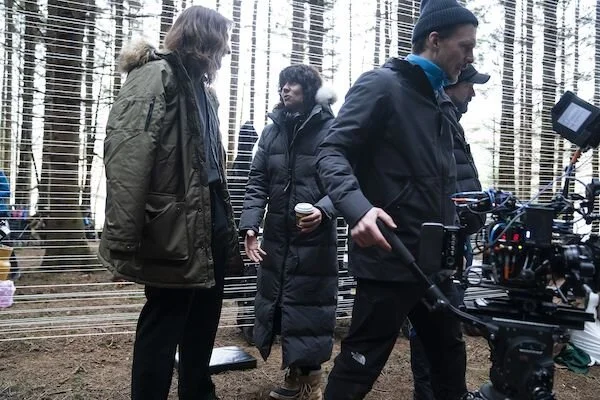Małgorzata Szumowska's Director's Statement For THE OTHER LAMB
Born in Kraków, Małgorzata Szumowska is one of the most prominent Polish directors of today. Szumowska has been honored with several international awards, including the Teddy Award for In The Name Of at the 2013 Berlin Film Festival and the Silver Leopard Award for 33 Scenes From Life at the 2008 Locarno Film festival. Her film, Elles (2011), featuring Juliette Binoche and Anaïs Demoustier, was sold to over 40 countries. Body (2015) won the Silver Bear for Best Director at the 65th Berlinale and her film, Mug (2018), was awarded the Grand Jury Prize at Berlinale. Szumowska's latest film, The Other Lamb, a 2017 Black List script starring Denise Gough, Raffey Cassidy, and Michiel Huisman debuted at the 2019 Toronto International Film Festival and is now available for Video on Demand courtesy of IFC Films.
For her entire life, the cult she was born into has been all that teenage Selah (Raffey Cassidy) has known. Along with a band of similarly cloistered young women she lives seemingly unstuck in time, cut off from modern society in a remote forest commune presided over by a man called Shepherd (Michiel Huisman),a controlling, messiah-like figure with a frightening dark side. But when her insular world is rocked by a series of nightmarish visions and disturbing revelations, Selah begins to question everything about her existence—including her allegiance to the increasingly dangerous Shepherd. Awash in images of primal,dreamlike dread, this provocative fable is a haunting vision of adolescent awakening and revolt.
The Other Lamb is a film for modern times; a dark cry against the patriarchy. When I first read the script, which was written by Catherine S. McMullen and featured on The Black List in 2017, I was struck by how the story is very much an allegory for the present moment -- a moment where women across the world are rewriting history by coming forward in droves about the abuses that they have faced at the hands of powerful men over the years.
At its core, this is a film about power — specifically the different ways in which it is exercised, understood, dismantled, and co-opted. Framed through the lens of a coming-of-age story, The Other Lamb chronicles the journey of Selah, a young woman who begins to question her upbringing and worldview as she comes to the realization that The Shepherd, the charismatic and handsome male leader of the cult she has grown up in, is in fact a false prophet. The Shepherd’s striking physicality and charisma is merely an illusion of strength; it is actually Selah who demonstrates incredible fortitude and clarity as she faces off with difficult contradictions within her life that arise as The Shepherd’s authority slowly begins to erode.
From the moment I read the script, I knew I wanted to cast Raffey in the role of Selah. She has a screen presence that is unabashedly wild and modern, which exists in stark contrast with the tradition and severity that Michiel bring s. Whether speaking or silent, both actors anchor the film with an exceptional intensity. Even when they aren’t sharing a scene together, it feels like they are going toe to toe.
Aside from the script and casting, in order to further underscore the zeitgeist quality of the film, it was actually very important to me that we position the narrative outside of a specific time period and location because not unlike a fairy tale, Selah’s story is enduring -- one that can speak to our past, present, and future. Cinematographer Michael Englert and I worked closely together to develop a world that reflected this particular sensibility. We drew great inspiration from a wide range of artists that have produced landscape work including contemporary photographers Jeff Wall and Gregory Crewdson. The film is also steeped in rain, fog, and rotten leaves, which adds a raw texture to the atmosphere that further complements Selah’s growing defiance.
I hope audiences that come to see The Other Lamb leave the theater feeling both reinvigorated and challenged by Selah’s revolutionary journey. The cult operates as a microcosm for the physical and psychological horrors that women must contend with throughout their lives. Selah’s emancipation, while rewarding, is by no means a form of wish fulfillment or a simple resolution. When we’re with her at the end, we must ask ourselves, where do we go from here?
- Małgorzata Szumowska
Director, The Other Lamb
Wanna know more?! Check out our review of the film right here.
What do you think? We want to know. Share your thoughts and feelings in the comments section below, and as always, remember to viddy well!


